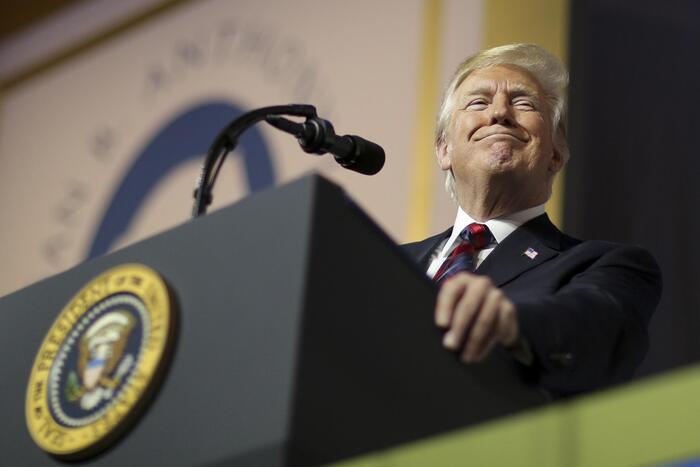On Tuesday Donald Trump stated to reporters that it is not possible to guarantee trials to migrants who must be deported, otherwise, he claimed, it would take two hundred years. The statement coming from the Oval Office effectively denies eight hundred years of democratic history, beginning with the Magna Carta, which established the right to habeas corpus. It was 1215, and King John of England was forced to issue the document in response to protests from rebellious barons who did not want to pay taxes for the Crusades; among other things, one clause laid the foundation for all subsequent jurisprudence that guarantees the right to challenge imprisonment in court. Due process is one of the cornerstones of American democracy.
The reactions to Trump’s words were many and diverse. For example, Representative Jonathan L. Jackson, a Democrat from Illinois, wrote on social media that the idea of not being able to give everyone a trial was, in his words, blatantly dictatorial rhetoric. He stated that due process is not optional just because it is inconvenient, emphasizing that this is America, not a banana republic, and adding that if one intends to shred the Constitution, one should at least have the courage to say so openly.
The Oval Office statements marked yet another attack by Trump on the judiciary, which he claimed was restricting his freedom of action. He falsely asserted that countries like Congo and Venezuela had emptied their prisons into the United States, and for this reason, he argued, it is necessary to bypass constitutional guarantees of due process in order to quickly expel immigrants.
Trump said he hoped for cooperation from the courts, because there were thousands of people ready to be removed, and in his view, it was not feasible to provide a trial for each of them. He argued that the system was not designed for that purpose and that, according to him, nothing required it. He maintained that the individuals being expelled included very dangerous people, such as murderers, drug dealers, and those with mental disorders. In reality, without judicial protections and without formal charges, no one knows what crimes–if any– the hundreds of people already deported to El Salvador were accused of, let alone guilty of.
He said that they were being expelled, and that a judge could not say they must receive a trial. In his view, a trial would take two years, and he warned that the country would become very dangerous if the administration was not allowed to do what it had the right to do. He had made similar statements in a social media post on Monday, writing that it was not possible to give everyone a trial, because, without exaggeration, doing so would take 200 years.
On Saturday morning, the Supreme Court with a conservative majority had, for the first time, directly challenged the White House by temporarily blocking the deportation of another group of Venezuelan migrants accused of being members of criminal gangs, with a 7–2 vote. The deportation had again been justified invoking the exceptional powers of a rarely used wartime law, the Alien Enemies Act of 1798.












